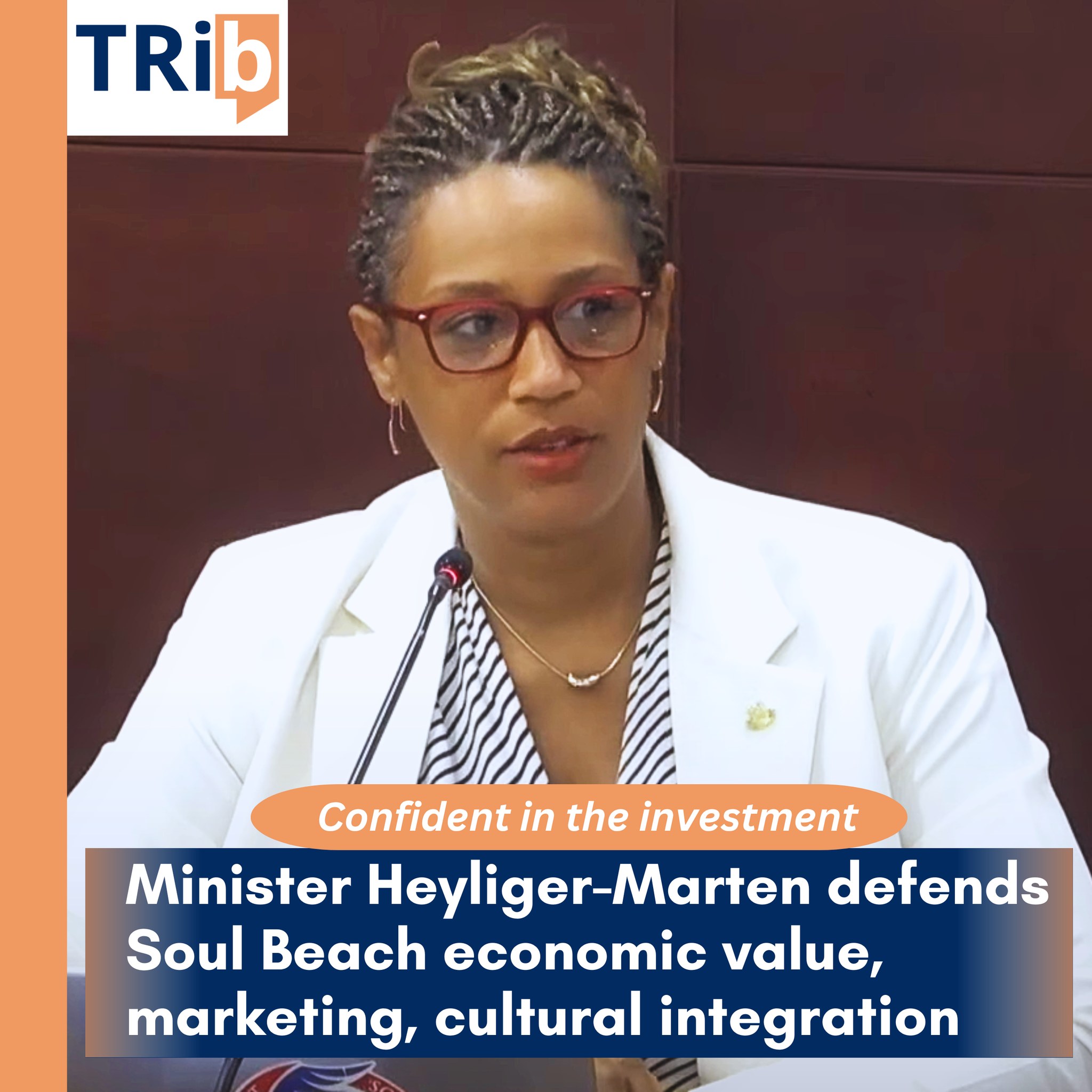GREAT BAY--Minister of Tourism, Economic Affairs, Transport and Telecommunication (TEATT), Grisha Heyliger-Marten, on Wednesday offered a strong defense of the Soul Beach Music Festival, hailing its early economic results and outlining a forward-looking strategy to position St. Maarten as a destination for premium international events.
In her address to Parliament, Minister Heyliger-Marten detailed the festival’s preliminary success, highlighted its targeted marketing approach, and reaffirmed the government’s commitment to increasing local participation in similar events moving forward. She also confirmed that the Social and Economic Council (SER) has been formally tasked with carrying out an independent impact assessment to provide a comprehensive and validated report. In the absence of this, all results are preliminary.
“Preliminary results show very promising outcomes,” the Minister said. “Based on discussions with stakeholders and early indicators, the festival brought in approximately 2,500 additional visitors, whose spending contributed significantly to local businesses. While these figures are not yet final, they strongly suggest that the event met or even exceeded initial expectations.”
The Minister explained that the early estimates were based on industry-standard tourism economic models, which factor in visitor numbers, average stay durations, and average daily expenditures. “The projected spending per visitor, across accommodations, transport, dining, shopping, and excursions, was conservatively placed at $1,500 over a five to six-night stay. That projects a multi-million-dollar economic injection directly tied to the festival,” she noted. However, she clarified that the tax office was not involved in compiling these initial figures, which remain provisional until verified by the SER.
“Full transparency is key,” Heyliger-Marten added. “That’s why we’ve formally requested the SER to conduct an independent evaluation using a rigorous methodology that includes data from business surveys, stakeholder feedback, and economic performance indicators. Their final report will become the official basis for future decisions and will be made publicly available.”
On the matter of promotion, the Minister was unequivocal in her support for the festival’s international marketing strategy, which she described as both data-driven and demographically targeted. “From the beginning, I approached this event with the mindset of a marketer. The organizers’ approach was not only well-conceived, it was aligned with our destination branding goals.”
The campaign targeted high-spending African-American professionals aged 30 to 55 from major U.S. cities such as Atlanta, New York, Washington D.C., Chicago, Los Angeles, Miami, and Houston. “We reached them through a coordinated mix of traditional radio advertising, digital and social media, email campaigns, influencer partnerships, and strategic alliances with airlines and hotels. Our goal was not just attendance but the right kind of attendance—travelers who spend in the local economy,” she said.
The Minister also highlighted the role of the St. Maarten Tourism Bureau (STB), which provided critical logistical and promotional support. “The STB worked to ensure our marketing aligned with international efforts and that the visiting team had on-the-ground assistance to make this a success. Their role was instrumental.”
Heyliger-Marten also turned to the cultural inclusion that marked this year’s event. “This was not just a concert, it was a cultural convergence. For the first time in Soul Beach’s history, we introduced a Carnival crossover during the iconic White Party,” she explained. “Our local DJs, performers, and revelers transformed the venue into ‘Soca Beach,’ bringing the spirit of St. Maarten Carnival to an international stage. The reaction was electric.”
She emphasized that this was more than symbolic. "So yes, local talent was involved, and will continue to be involved, more
prominently, more intentionally, and more proudly, because our culture is not an afterthought, it's an asset."
Looking ahead, the Minister assured Parliament that the government is already examining ways to build on this success. “The goal is not just to repeat Soul Beach but to expand our event tourism calendar. We’re already reviewing how to integrate more local entrepreneurs, creatives, and service providers into every layer of such events, through vendor spaces, culinary features, and cultural programming.”
In response to parliamentary questions about the inclusion of more local artists in future editions, she confirmed that this will become standard practice. The Minister closed her remarks by reaffirming her confidence in the Soul Beach model and the broader event-driven tourism strategy.
The SER’s official economic impact report is expected to be finalized and made public in the coming months.
Join Our Community Today
Subscribe to our mailing list to be the first to receive
breaking news, updates, and more.






